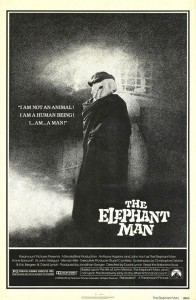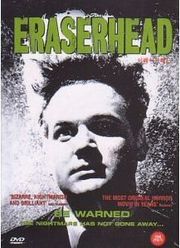by Yayaati Joshi
[box]The works of David Lynch, which are hard to categorise into any one genre, are to be treated like Franz Kafka – watched, pondered over, understood, and only then will one realise his genius. Yayaati Joshi in his monthly Film Freak, pens some thoughts about Lynch and some of his movies.[/box]It’s no secret that critics and fans have polarising opinions of David Lynch’s work, most of which is hard to decipher for the causal movie goer. His oeuvre is an array of work that is impenetrable, and to those who don’t invest much time in watching films, boring. The perception of his personality is that he is someone who has his own, peculiar visions about filmmaking, and they are often not in concurrence with what is considered to be “regular filmmaking”. An obvious and slightly populist opinion is that given he started out as a painter—and painters (or artists in general) are known to be quirky —some of that quirkiness, and abstraction crept into his films as well. One needs to look no further for evidence of complexity of Lynch’s work than the fact that one of the books on him is titled “David Lynch Decoded,” acknowledging that his films need to be decoded in order to be understood.
Not all opinions of his filmmaking are favourable. The first full length feature film that he made, Eraserhead, has got as many bouquets as brickbats. That the abstract, obtuse, and bizarre film was made in a period of over five years indicates either of the two things: the director is, mildly put, crazy—to invest so much time in a film that even he doesn’t discuss openly; or he was trying to produce a work of high art, which in the first place was never meant to be understood by many. Like a Franz Kafka novel, his first film is very difficult to understand. There is no other way of putting this across—there is no standard plot to begin with, characters appear out of nowhere, and the film features a terrifyingly disfigured, misshapen “child” that is apparently born out of wedlock.
Like Kubrick’s 2001: A Space Odyssey, the opening shot of the Eraserhead has no dialogues for almost 15 minutes—all one hears is what can be construed as the sound of many machines running together at a faraway place.(Interesting trivia: Kubrick himself liked Eraserhead very much, and the only other filmmaker to have solidarity in this matter was John Waters—whose films are as glacial, macabre and strange as Lynch’s). The first thing that we see is a sperm-like thread ejecting out of the protagonist’s head, and disappearing into space. The following scenes provide no explanation of the imagery. Then, in a dark corner, a man with visible blisters and boils all over his body is operating levers—which again, are left un-discussed and unexplained. Throughout the film, there are dozens of things that will make the viewer feel uncomfortable. That makes us question the intent of the filmmaker. What was he trying to achieve, with this dead plot and sickening spectacles? (Towards the end of the film, the protagonist cuts the bandages, in which the ugly “child” is wrapped, thus exposing all the internal organs and starting a sort of foam-like bleeding, which can only be described as disgusting.)
If there were a subtext to the movie, and there were deeper meanings to each of the scenes, one would have expected Lynch to explain those, and make the movie understandable. But Lynch, even in the DVD release, has been silent about the premise of the film. The DVD release of the film has him talking about the making of the film, but nowhere do you find an explanation to the most Kafkaesque of things in the movie. For example, in one utterly grotesque shot in the film, the protagonist dreams that his head has been chopped off, and is taken to a pencil manufacturing factory, where material from his head is used to make pencils. If there were anything that was most open to interpretation, then it was this first film by Lynch. Hardly belonging to the “horror” genre, as many critics and aficionados have labelled it to be, Lynch’s first recondite film is important in at least one aspect: it allows us to prepare ourselves for other movies by the same director, and understand that he has a taste for the macabre.
But perhaps Lynch himself knew that if he had to make himself known outside of the uppity circles, he’d have to make a more “mainstream” film. And he came up with a cracker of a film—The Elephant Man. The film was about a real life character, John Merrick—known as the “Elephant Man” due to his facial deformity. Merrick’s head was considerably larger, and had tumour like growths on his forehead, which were formed, it is believed, due to an attack of wild elephants on his pregnant mother (hence the moniker “Elephant Man”). The plot of the film was comparatively simple: a doctor spots a deformed man (John Hurt, long before he became the famous Mr. Ollivander of the Harry Potter series) at a freak show and makes an effort to cure him. The doctor, Anthony Hopkins, soon realises that he won’t be able to cure Merrick, and thus decides to shelter him in the hospital, by allotting him a permanent bed there. If this sounds like a simple tale of a bleeding heart doctor—it is not. Lynch is never divorced from his fascination with the macabre. Lynch puts the viewer so close to the deformed character that it takes a while before the character can earn our sympathies. By the end of the film, we see the character mixing with the society, being visited by actresses and receiving gifts from people—but there is a hint in the film that this is a very cruel joke. The type of joke that doesn’t make you laugh, but sneer. Because no matter how “accepting” the city of London becomes to this deformed character, in truth, their interest is piqued only because of his condition.
film. And he came up with a cracker of a film—The Elephant Man. The film was about a real life character, John Merrick—known as the “Elephant Man” due to his facial deformity. Merrick’s head was considerably larger, and had tumour like growths on his forehead, which were formed, it is believed, due to an attack of wild elephants on his pregnant mother (hence the moniker “Elephant Man”). The plot of the film was comparatively simple: a doctor spots a deformed man (John Hurt, long before he became the famous Mr. Ollivander of the Harry Potter series) at a freak show and makes an effort to cure him. The doctor, Anthony Hopkins, soon realises that he won’t be able to cure Merrick, and thus decides to shelter him in the hospital, by allotting him a permanent bed there. If this sounds like a simple tale of a bleeding heart doctor—it is not. Lynch is never divorced from his fascination with the macabre. Lynch puts the viewer so close to the deformed character that it takes a while before the character can earn our sympathies. By the end of the film, we see the character mixing with the society, being visited by actresses and receiving gifts from people—but there is a hint in the film that this is a very cruel joke. The type of joke that doesn’t make you laugh, but sneer. Because no matter how “accepting” the city of London becomes to this deformed character, in truth, their interest is piqued only because of his condition.
The most notable parts of the film are the ones where Merrick has to interact with “normal” people. For a person who is used to being awed at—usually in horror—it is difficult to accept that people can be kind to him as well. In a scene where the doctor introduces him to his wife, and shows him pictures of his children, Merrick comments “They have such noble faces.” Perhaps the children were not so pretty after all, but for Merrick, a regular face devoid of any flaws is “noble.” All of which brings me to this point: there is considerable drama in the film, and Lynch handles it all very well. The film was nominated for eight Oscars, thus catapulting him to worldwide fame, and establishing his expertise in dealing with traditional, linear narratives.
Later in his career, Lynch went on to make some films like Dune and Mulholland Drive. The plots of all his later films were labyrinthine. Lynch’s work continues to baffle and astound critics, and adds to the fierce debate between “high art” and “commercial cinema.” If some critics are to be believed, then these two terms belong in the trash can, so that each film can be seen as an individual piece of work, without the burden of being pre-moulded in a label. A counter argument is that the director is obligated to at least present something to the audience which they can enjoy—thus bringing the oft-discussed “escapism” angle to movie watching.
I am all in for trying out new styles of cinema, but at the great risk of being dubbed as a philistine, I have to say that I agree with people that they should get their money’s worth while watching a film. Lynch’s cinema is not something that I would recommend to people who are starting a serious relationship with movies, for it can take more than just time to adjust one’s viewing pattern, and get familiar with his work. Should that stop people from watching his films? If there was a film festival with Lynch’s films being shown, then I am sure that first timers would walk out of the hall disappointed. But if initial reactions were anything to go by, Franz Kafka wouldn’t be considered a literary genius. His works are to be read, considered and pondered over to be understood. The same is true of David Lynch.
Film Freak is an exclusive monthly column by Yayaati Joshi, who, well, is a film freak. It features movie reviews and essays on various aspects of Indian and world cinema.
Yayaati Joshi is a man with simple tastes and intense beliefs. Contrary to the bling associated with the capital city, he prefers the company of close friends, an engaging book or an Alfred Hitchcock movie. His placid demeanour is often mistaken for reticence; Yayaati is a self- proclaimed loner, whose recent pursuits include his foray as a budding writer. Yayaati blogs at http://rantingsofadelusionalmind.wordpress.com
[facebook] [/facebook] [retweet]Tweet[/retweet]






[…] [An edited version of the article can be read here] […]